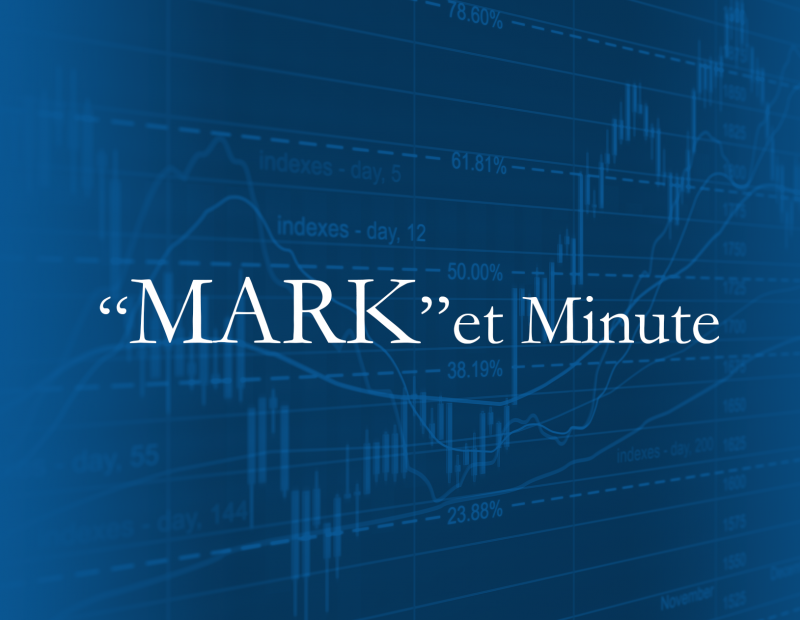Investment Commentary –January 23rd, 2018
Market Indices as of Market Close January 23rd, 2018Dow 26,210 (6.13%)
S&P 2,839 (6.28%)
NASDAQ 7,460 (8.08%)
Gold $1,356 (3.59%)
OIL $64.74 (7.65%)
US 10Y Treasury 2.65 (23.96%)
Barclay Bond Aggregate (-0.85%)
Dimon doesn’t ‘see any potholes’ for the U.S. economy
J.P. Morgan Chase & Co. CEO Jamie Dimon said he isn’t expecting any potholes ahead that could disrupt what has been a stellar run for the stock market and the economy.
Speaking on CNBC during the World Economic Forum in Davos, Switzerland, the head of the world’s biggest bank by assets said that although he acknowledges he may “not be able to see the potholes,” that are actually there, he believes that pro-growth policies have positioned the economy and the market for success.
Those policies follow a decade long period of sluggishness that has been supported by the Federal Reserve and global central banks since the financial crisis brought much of the world-wide economy to its knees in 2007-08, he said.
“We can’t believe that we are doing so well. It’s been a long 10 years,” Dimon said.
Of course, the bank boss said rising interest rates, among other factors, could be impediments. But he saw few reasons that could upend what is viewed as an upbeat economic growth trajectory.
On Tuesday, the S&P 500 index SPX, +0.22% noted its 12th all-time closing record, marking the most record finishes for the broad-market benchmark, surpassing the 11 logged in January in 1964, according to WSJ Market Data Group.
Overall, the S&P 500 is up 6.2% so far in January, while the Dow Jones Industrial Average DJIA, -0.01% boasts a gain of about of more than 6% and the Nasdaq Composite Index COMP, +0.71% has rallied more 8% so far this month. Dimon has been particularly bullish of late.
TRowe Price Insight: Financial Planning Implications of the U.S. Tax Reform Measure
Overall, the U.S. tax reform measure highlights the importance of a planning strategy that can adapt to change.
Key Points
The U.S. tax reform measure will have wide-reaching effects on investors. We believe a planning strategy based on fundamental principles is the best response.
While the biggest changes relate to business taxation, the measure also reduces individual tax rates. Those individual changes will revert to 2017 levels after eight years unless Congress takes further action.
Considering the temporarily lower rates and future uncertainty, investors may want to consider contributing to Roth accounts.
Lower taxes may help people to boost their retirement savings to the 15% or more of current salary (including employer matches) that we typically recommend.
Given the complexities and uncertainties associated with the new tax measure, we strongly recommend that investors consult with their professional tax advisors.
The U.S. tax reform measure could have wide-reaching effects on financial planning decisions for millions of Americans. We believe that a strategy based on fundamental planning principles offers the best path to success for investors as they respond to these changes.
Among the biggest changes in the tax measure is a dramatic reduction in tax rates for corporations and closely held businesses. This means that business owners, including corporate shareholders, will be able to keep more of their businesses’ profits. While the effects of the new taxation structure will vary widely by sector and among companies, overall it should be positive for owners and equity holders.
Around the web
GDP ahead
The U.S. government’s initial estimate of fourth-quarter GDP is expected to be one of the most closely watched economic reports this week. Most economists expect Friday’s report will show an annual growth rate of around 3.0%, slightly below the third quarter’s 3.2% rate.
Dollar’s weakness
The U.S. dollar fell on Thursday to the lowest level since May 2015, as measured by its value versus major foreign currencies. Analysts attributed the decline in recent days to concerns about a possible partial U.S. government shutdown as congressional leaders and President Trump tried to negotiate a short-term government funding measure.
China’s momentum
China’s economic growth rate has accelerated for the first time in seven years. The government said GDP growth in 2017 was 6.9%, up from 6.7% the previous year. Although the 2017 figure is higher than many economists had expected, it marks a slowdown from the double-digit growth that China routinely posted a few years ago.
The views presented are not intended to be relied on as a forecast, research or investment advice and are the opinions of the sources cited and are subject to change based on subsequent developments. They are not a recommendation, offer or solicitation to buy or sell any securities or to adopt any investments.
https://www3.troweprice.com/usis/personal-investing/planning-and-research/t-rowe-price-insights/retirement-and-planning/personal-finance/tax-reform.html
https://www.marketwatch.com/story/jamie-dimon-doesnt-see-any-potholes-for-the-us-economy-2018-01-24

